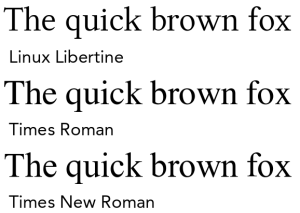Now here's the problem.
We know that there has been great strides on the x86_64 terain the pst couple of years, but this post got me a bit worried.
QUOTE
blubb
Developer
Currently, it is nearly impossible to have a pure stable system with Gentoo/AMD64. I think everybody who has ACCEPT_KEYWORDS=amd64 in his make.conf also has a rather large list of packages in /etc/portage/packages.keywords. To adress this issue, we need either a massive improvement in amount of menpower or a list of packages we can to focus on. If you run a stable system and you're interested in helping...
LINK
Currently, it is nearly impossible to have a pure stable system with Gentoo/AMD64.
The reason I bring this up is because I wanted to try amd64 again after quite a while (I last tried it over a year ago) but this has totally put me off. I want a system that works, I need mulitimedia apps (recording and editing video and audio) to be stable and 100% functional and I think for this reason I'm staying with x86 for the time being.
Now, are the Linux devs missing the boat here? Shouldn't they be scrambling to get the x86_64 as stable as soon as possible? Intel and AMD are never going back to 32-bit and you don't get 32-bit CPU's for AMD anymore at all (I think the Sempron is also a 64-bit CPU not so?) and it would seem a waste to spend all your manpower on projects that are going to be obsolete in about a years time.
I guess all I'm saying is that I'm a bit worried that they are focusing their efforts on the wrong projects atm.
